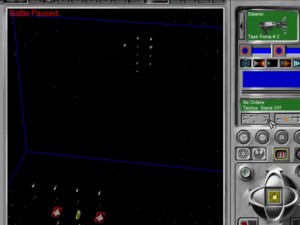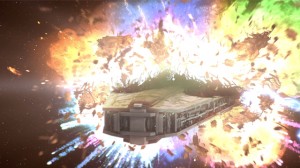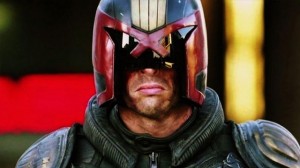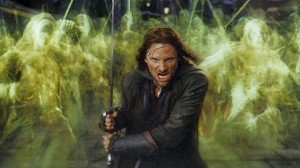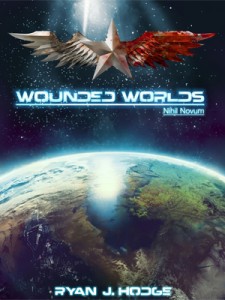-Ryan J. Hodge
For someone who enjoys a great story, is there anything better than a narrative that engages you from the very start? Imagine a world so rich you can almost smell the scents in the air, a delivery so clever it forces you to think in a way you never thought you would. I’m Ryan J. Hodge, author, and I’d like to talk to you about…Video Games.
Yes, Video Games. Those series of ‘bloops’ and blinking lights that –at least a while ago- society had seemed to convince itself had no redeeming qualities whatsoever. In this article series, I’m going to discuss how Donkey Kong, Grand Theft Auto, Call of Duty and even Candy Crush can change the way we tell stories forever.
What Star Wars: Rebellion Teaches Us About Writing Asymmetrical Conflict
It may surprise some to know that my all time favorite strategy game is a rather obscure title from 1998. It’s called Star Wars: Rebellion and despite the weight of the franchise, its reception was fairly mixed among SW fans and gamers alike.
I can certainly appreciate their concerns; the pace is slow, the battle interface is clunky, and even for ‘98 the visuals…could be better.
Yet, despite its flaws, I play it to this day! Why? For me, there was something special about Rebellion that I just couldn’t get in any other SW strategy game (or strategy games in general); that special thing was the feeling of actually running an Empire/Resistance movement.
Part of what makes Rebellion so slow is the fact that gameplay is conveyed in a day-by-day basis. A new regiment of soldiers takes more than a month (in-game time) to train, and some of the larger ships can take as long as a year. This means that every decision a player makes will have drastic consequences. Money and time spent building a Star Destroyer is money and time you can’t get back; and if a group of plucky rebel infiltrators were to blow up your ship yards…
This asymmetrical warfare system is what keeps me seated in my chair, squinting diligently at the pixilated late 90s graphics. It also got me thinking about the dynamics of a large military force, and a rag-tag band of belligerents in fiction.
When we think of oppressive regimes, we tend to think of them as phenomenally ubiquitous, monolithic machines of subjugation. Consider George Orwell’s 1984 (1949, Novel) and the ‘Oceania’ regime. What makes such a totalitarian state so utterly terrifying is the idea that ‘Big Brother’ is always watching; that any dissent will be caught and rectified instantly. However, the sheer number of resources required to run such a state is so boggling as to be utterly impractical. In 1984, it is a humble shopkeeper (secretly working as an officer of the ‘Thought Police’) who betrays the protagonist; and while that works fine to foster an atmosphere of paranoia, one is forced to wonder what function such an officer would serve if there were no hapless protagonist to compromise.
When we apply these issues on a galactic scale; the problem becomes even more apparent. Maintaining a large planetary defense force on every system is expensive, time consuming, and largely unnecessary. Rather, a respectably sized fleet poised to deal with problem spots as they arise just makes more sense.
Such thinking is exhibited in Dredd (2012, Film). While “Megacity One” is nominally a police state, it’s clear that the ‘Judges’ entrusted to maintain order are thinly stretched and utterly overwhelmed. In order to maintain the illusion of order; they are remarkably heavy-handed in the enforcing of ‘The Law’. While this may seem shocking and draconian to the average viewer, it’s fairly simple to realize that any failure to maintain their authority would result in the populace to descend on the Judges and burn the city into anarchistic ruin.
And so we have a dystopian regime that’s actually more afraid of the people it oppresses than the people are of it.
When conveying the flipside (i.e.: Resistance), new narrative challenges arise. Despite the fact that the oppressive force is guaranteed to be stretched thin, the knowledge that they will simply have access to greater resources can be intimidating. This concept is well realized in V for Vendetta (1988, Graphic Novel) as the repressive and totalitarian government is almost totally supplanted after a few strategic bombings inspire the populace to rise up. Before that point, however, the claws of the government seemed omnipresent. However, the protagonist, V, understood that it was only geared toward violently suppressing the odd insurgent and could not possibly maintain control over a revolting populace.
However, the power to suppress an individual trouble maker should not be underplayed. Playing as the Rebels in Rebellion largely relegates the player to the Galactic Rim. While this gives you greater flexibility to explore and maneuver; it makes coordinating operations between your bases a considerable pain. Attempting to create any sort of centralized manufacturing base will allow the Empire a considerable opening to derail the resistance effort should it be discovered. As such, we learn that a good resistance not only never leaves its eggs in one basket, but moves its baskets often.
Consider the adventures of The Fellowship in The Lord of the Rings (1954-1955, Novels). In the first novel, the group is a constant target for the forces of evil. They make themselves not only an obvious target, but also hamstring their ability to assist elsewhere. By spreading their energies in later novels; they exponentially increase their effectiveness against Sauron’s armies.
Conversely, if they had not split, the ‘Free Kingdoms’ would have surely fallen before the band would have ever reached Mordor.
Star Wars: Rebellion captures all the elements and dilemmas of its factions. From organizing clandestine raids, to pummeling entire worlds into submission, it is truly fascinating how an obscure strategy game from the late 90s can capture the width and breadth of asymmetrical conflict. Whether it’s an Empire that’s terrified of running out of Stormtroopers or the sudden alert of a massive fleet jumping into a Rebel system. Taking the time to learn the system might be a pain, but who know? It just might make you a better writer.
Ryan J. Hodge is a science fiction author and is a Games Industry veteran. His latest book, Wounded Worlds: Nihil Novum, is available now for eBook & Paperback.
You can now follow Ryan on Twitter @RJHodgeAuthor


